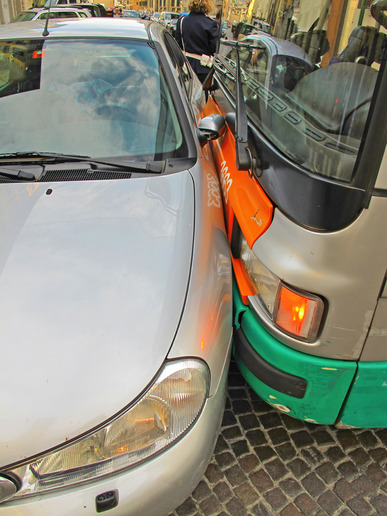CHICAGO, IL – Car accidents are stressful and can happen in an instant. In Chicago, with its busy streets and highways, knowing what steps to take after a collision can protect your legal rights, ensure your safety and streamline potential legal claims. As a plaintiff’s firm, we understand that the moments following an accident are crucial. Here’s a comprehensive guide on what to do if you’re involved in a car accident in Chicago.
1. Ensure Safety and Check for Injuries
Your safety and the safety of others are the top priorities. Immediately after the accident, check yourself and your passengers for injuries. If anyone is seriously hurt, call 911 for emergency medical assistance. Illinois law requires you to render aid to anyone injured, but you should avoid moving them unless it’s absolutely necessary to prevent further harm.
If the vehicles are creating a hazard or obstructing traffic, and it’s safe to do so, move them out of the way. However, if the accident involves significant damage, it’s better to leave the cars where they are and wait for the authorities to arrive.
2. Call the Police
In Illinois, you’re legally required to report any car accident involving injury, death or property damage exceeding $1,500. Even if the damage seems minor, it’s best to have an official police report filed. Call the Chicago Police Department, and when the officers arrive, provide them with accurate details. This report will be critical if you pursue legal action or an insurance claim.
Make sure to ask how to obtain a copy of the accident report. You can request the report from the City of Chicago’s Office of Emergency Management and Communications (OEMC) within 10 days of the incident .
3. Exchange Information
Illinois law mandates the exchange of essential information between the parties involved in the accident. Collect the following details:
- Name, address, and phone number of the other driver(s)
- Driver’s license number
- License plate number
- Insurance company and policy number
- Make and model of the vehicles involved
While exchanging information, avoid discussing fault or making any admissions. Anything said at the scene can be used against you later in court or by insurance adjusters.
4. Gather Evidence at the Scene
The more evidence you can collect immediately after the accident, the stronger your case will be. Use your smartphone to take pictures of the following:
- Damage to all vehicles involved
- Road conditions, skid marks, or debris
- Any visible injuries
- Traffic signals, signs, or anything else that may have contributed to the accident
- The other driver’s license and insurance card
If there are any witnesses, ask for their contact information. Independent witnesses can provide key testimony if the case goes to trial.
5. Seek Medical Attention
Even if you don’t feel seriously injured, it’s important to see a doctor as soon as possible. Injuries such as whiplash or concussions may not show symptoms immediately but could worsen over time. Having a medical evaluation also creates an official record of your injuries, which can be critical when filing a personal injury claim.
In Illinois, if you’re injured in an accident caused by another driver’s negligence, you may be entitled to compensation for your medical expenses, lost wages, and pain and suffering .
6. Notify Your Insurance Company
Illinois requires drivers to carry liability insurance, and you’re typically obligated to inform your insurer about an accident promptly. When reporting the accident, stick to the facts and avoid providing a recorded statement without consulting a lawyer first. Insurance companies may attempt to minimize payouts or deny claims, so it’s crucial to know your rights before entering into discussions with them.
7. Contact a Personal Injury Attorney
Navigating the legal aftermath of a car accident can be overwhelming, especially if you’re dealing with injuries, medical bills or an uncooperative insurance company. Hiring a personal injury attorney who specializes in auto accidents can help ensure that your rights are protected and that you receive the compensation you deserve.
In Illinois, the statute of limitations for filing a personal injury claim is generally two years from the date of the accident . However, certain circumstances, such as accidents involving government vehicles, may have shorter timeframes. An attorney can guide you through the process and negotiate with insurance companies on your behalf.
8. Avoid Discussing the Accident on Social Media
In today’s digital age, it’s tempting to post updates about life events on social media. However, after a car accident, it’s best to avoid sharing any details about the incident online. Insurance companies and defense attorneys often monitor claimants’ social media profiles for posts that could undermine their claims. Even innocent statements can be taken out of context and used to reduce your settlement.
Conclusion
Being involved in a car accident in Chicago is a stressful experience, but knowing what steps to take can make the aftermath more manageable. By ensuring safety, gathering evidence, seeking medical attention, and consulting with a personal injury attorney, you can protect your rights and increase the likelihood of a successful legal outcome. If you or a loved one have been injured in a car accident, contact our experienced team at (312) 384-1920 now to help you navigate the complexities of your case.



